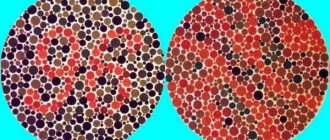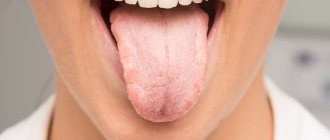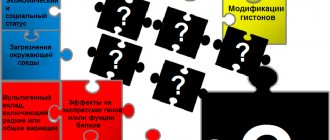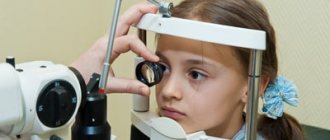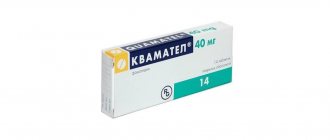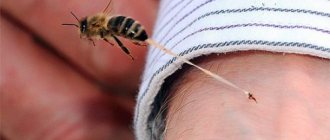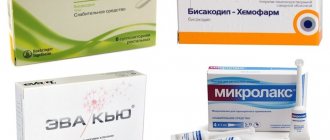What causes noise, humming and whistling in the ears, what to do with them if they poison your life, and in general - is it dangerous? How to determine the cause and is it possible to get rid of unpleasant hearing sensations forever?
I don't want to hear it!
We have already written about tinnitus - noise, hum and/or whistling in the ears, as a sensation of unknown etiology, without an external sound source (see the articles “...Do you hear it too?” and “I hear a ringing, but I don’t know where it is” ). In short: perhaps each of us has encountered such phenomena at least once in our lives. For most people, the ringing goes away quickly, leaving no unpleasant consequences or memories. But sometimes an annoying symptom occurs so often and lasts so long that it forces you to see a doctor. And it is right! To begin with, you can make an appointment with a local therapist, an ENT specialist, or better yet, directly with an audiologist at a specialized medical center.
Detailed examinations (including MRI, CT, ECG, blood tests, etc.) will help identify the true cause. It is not always subjective, that is, true tinnitus. There is a high probability of detecting very real diseases.
Classification of noise in the head and ears
Due to the variety of noise variants, they were classified - combined into groups, common according to the causes of occurrence or characteristics of the course of the disease.
EPFowler (1947) identified two types of tinnitus:
- objective, or vibrator (occurs as a result of vibrations of any parts of the body, exists in reality, can be recorded using a phonendoscope or the use of other diagnostic methods);
- subjective, or non-vibratory (felt by a person, but does not occur in reality, the source of the hum in real life is absent; it cannot be assessed from the outside; it is also called the term “tinnitus”).
In their practice, doctors use a classification of noise based on its cause and distinguish:
- noise of the external, middle ear;
- muscular;
- vascular;
- central;
- peripheral noise.
Shpidonov Gennady Stanislavovich
Neurologist
Rostov State Medical University (neurology)
10 years of experience
Depending on the quality characteristics, the following are distinguished:
- one-sided or two-sided;
- pulsating or monotonous;
- arising from time to time or present constantly;
- low-frequency hum or high-frequency squeak, ringing;
- barely noticeable or strong, intense noise.
Diet
Correction of nutrition for tinnitus always depends on the disease that caused this symptom. For example, if you have hypertension, it is advisable to limit your intake of salt, coffee and alcohol.
There is no single diet designed specifically to eliminate tinnitus.
For the purpose of prevention, some foreign sources recommend eating pineapples, bananas, garlic and seafood. However, research data supporting the effectiveness of such a diet is still limited.
Causes
Noises in a person’s head are not always a symptom of pathology. Many sounds arise in our body during its life - during blood flow, joint movement, contraction and relaxation of muscles. They are masked by other sounds present around us and seem invisible to us, and in conditions of complete silence we can pay attention to them.
However, in most situations, extraneous noise, humming and other sounds in the head or ears are a sign of a pathological condition and a reason to contact a specialist.
Vibrator noise is caused by:
- diseases of the temporomandibular joint;
- neuromuscular diseases (gap of the auditory tube, myoclonus of the muscles of the soft palate, middle ear);
- changes in blood vessels (heart valve defects, narrowing of arteries, problems with veins, arteriovenous shunts).
Subjective noise may be based on:
- metabolic disorders (diabetes mellitus, thyrotoxicosis, hyperglycemia, hypoglycemia, atherosclerosis);
- brain tumors;
- neuroma of the VIII pair of cranial nerves;
- diseases of the hearing organ (cerumen plug, otitis, sensorineural hearing loss, labyrinthitis, neoplasms, Meniere's disease, trauma);
- damage by toxic substances (medicines that have a toxic effect on the organ of hearing, methyl alcohol and others);
- diseases of the spine (degenerative-dystrophic changes, instability and others);
- neurological diseases (acute and chronic cerebrovascular accidents, multiple sclerosis, neurocirculatory (vegetative-vascular) dystonia);
- hypertonic disease;
- mental disorders (neurasthenia and other neurotic disorders, depression, schizophrenia);
- exposure to noise and vibration in production;
- traumatic brain injuries (bruises, contusions).
Shpidonov Gennady Stanislavovich
Neurologist
Rostov State Medical University (neurology)
10 years of experience
Consequences
Since tinnitus is only a symptom and not an independent pathology, the consequences of lack of timely treatment will also affect the underlying disease. Let's give a few examples.
When the eardrum ruptures
In the absence of timely treatment, there is a high risk of developing inflammation of the inner ear, since bacteria have increased access to the auditory canal. In the most severe cases, the spread of infection through the bloodstream to the brain can lead to the development of encephalitis or meningitis.
Possible complications of a ruptured eardrum also include cholesteatoma, which is a neoplasm of degenerated epithelial cells. As the cyst grows, it can close the ear canal and act as a breeding ground for bacteria. Inflammation of the auditory nerve, which is accompanied by severe pain, is also possible. As a result, a person may completely or partially lose their hearing.
For acoustic trauma
The cause of acoustic ear injury is the stressful impact of sound vibrations, usually associated with work characteristics. If you refuse to change activities in such cases, the patient risks remaining completely or partially deaf (the most offensive thing is that the tinnitus will not go away). It is also important to understand that damage to the hair apparatus makes the inner ear more vulnerable to infections.
Consequences of taking medications
Long-term use of ototoxic drugs (antibiotics, cytostatics, loop diuretics, etc.) can lead to both temporary and irreversible hearing impairment. The most ototoxic antibiotics today are the aminoglycoside group of antibiotics.
For otosclerosis
If left untreated, the patient's tinnitus worsens, but the hearing itself rapidly deteriorates until complete deafness develops. As mentioned above, the only effective treatment for otosclerosis is surgery, however, complications are also possible here. For example, in the postoperative period, dizziness may occur, sometimes the pressure of the perilymph in the inner ear increases, in some cases, infection may occur and purulent otitis may develop, which requires repeated surgical intervention.
For arterial hypertension
The consequences of untreated hypertension primarily affect the cardiovascular system, as well as the kidneys and central nervous system. In severe cases, the development of coronary heart disease, angina pectoris, renal failure, heart attack and stroke is possible.
In case of cerebrovascular accident
The most serious complication is ischemic stroke, which can lead to impaired speech, memory, coordination of movements, and in severe cases lead to death. In the chronic course of the disease, in addition to tinnitus, the patient will be bothered by sleep disturbances, poor concentration, attacks of dizziness and a general decrease in performance.
Important! The occurrence of tinnitus can be a symptom of diseases that, if untimely or improperly treated, lead to serious consequences - from deafness to death. That is why such a symptom cannot be ignored.
If tinnitus continues for several days, you should consult a doctor. Depending on the accompanying symptoms and the most likely cause, this doctor may be an otolaryngologist, internist, or infectious disease specialist.
Rumble in my head
It can also be normal if it appears when a person is in a noisy environment (on a street with active traffic, in a crowded place, in a noisy industry) and after returning to a quiet place, it gradually goes away within two hours. Sometimes it appears as a side effect of a number of medications - antidepressants, anticancer drugs, some antibiotics and NSAIDs. It can also occur in the postoperative period during operations on the organ of hearing - in this situation it is a consequence of intervention in the apparatus that conducts sounds, and after a while it goes away on its own.
Prevention
Prevention of tinnitus directly depends on the condition in which it occurs. For example, if you are prone to hypertension, you should give up bad habits, lead an active lifestyle, and do not overuse coffee and salty foods.
It is important to avoid stressful situations and be calmer about minor everyday irritants. Nervous stress, in addition to causing tinnitus, is fraught with a number of psycho-somatic disorders, so it is very important to learn to suppress excessive temper and suspiciousness.
Those who work in noisy industries should use earplugs. At the same time, it is important to monitor their cleanliness, since violation of basic hygiene rules can cause infection of the ear canal.
When using headphones, special attention should be paid to a safe volume level. It’s easy to determine - if when listening to music you don’t hear any extraneous external sounds (for example, a loud click of your fingers), the volume should be lowered.
Photo: freepik.com
At concerts or clubs, you should stay away from the sound source. For reference, the upper limit of safe noise exposure is considered to be 90 dB (this is comparable to the volume of a passing truck), while at concerts the noise level often exceeds 120 dB. You can also insert small cotton balls into the ear canal.
Diagnosis and treatment of noise in the head
When this unpleasant symptom appears, you should not waste time doing self-diagnosis, try to cope with it yourself, or hope that “it will pass.” The correct decision for the patient is to seek help from a specialist.
Diagnosis of diseases accompanied by noise in the head is carried out by doctors of various profiles - therapists, otolaryngologists, neurologists, psychotherapists/psychiatrists. But most often, patients with such a problem turn first to a neurologist.
First of all, the doctor’s task is to specify the noise, to understand what exactly the patient feels - a high-frequency squeak, ringing, buzzing, buzzing or hum, one- or two-sided, accompanied by pulsation or not; clarify the intensity of sensations and the symptoms that could accompany them. If the patient does not tell him himself, the doctor will ask leading questions about whether there is hearing loss, congestion in the ears, headache (usually occipital) pain, a tendency to increase or decrease blood pressure, find out what somatic diseases the person seeking his appointment suffers from. Human. Based on these data, the specialist will suggest what type of tinnitus he is dealing with - objective or subjective. Then he will conduct an objective examination - examine the organ of hearing and perform a number of tests necessary to make a diagnosis.
Shpidonov Gennady Stanislavovich
Neurologist
Rostov State Medical University (neurology)
10 years of experience
At the end of this diagnostic stage, the neurologist will make a preliminary diagnosis (or several putative diagnoses) and prescribe further examination to clarify it, in particular:
- general blood and urine analysis;
- blood biochemistry (lipidogram, coagulogram, ferritin);
- duplex or triplex scanning of neck vessels;
- MRI of the brain or cervical spine;
- consultation with an ENT doctor.
The scope of examinations is determined individually, depending on the specific clinical situation.
If a somatic doctor has not established the cause of noise in the head, he will assume the psychogenic nature of this condition and recommend that the patient consult a psychiatrist or psychotherapist. The specialist will have a targeted conversation with the patient, find out what complaints he has, focusing on feelings of anxiety or fear, decreased mood, especially in the morning, sleep disturbances, severe weakness, palpitations, sudden fluctuations in blood pressure, and will clarify whether this condition is permanent or temporary, not Is it related to stress? If a patient is suspected of neurosis, psychosomatic disorder or depression, the doctor will conduct a series of tests to clarify the diagnosis.
Only after the diagnosis has been established is it recommended to begin treatment for noise in the ear and head.
Medicines for noise in the head and ears
Conservative therapy often helps to cope with this symptom. Depending on the manifestation of which disease the noise is, the patient may be prescribed medications from the following groups:
- antibacterial, anti-inflammatory drugs (for infectious and inflammatory diseases of the ear);
- vascular drugs (improve blood circulation, nutrition of brain cells, dilate blood vessels);
- nootropics (improves metabolic processes in the cells of the nervous system);
- B vitamins (improve trophism of nervous tissue);
- trimetazidine (nourishes the heart muscle);
- iron supplements (if the noise is based on iron deficiency anemia);
- betahistine (for noise due to increased pressure in the cochlear labyrinth);
- antidepressants, anti-anxiety drugs, antipsychotics (if the pathology is psychogenic);
- sedatives, hypnotics – if the patient complains, it is not the inability to sleep;
- medications containing caffeine (for a tendency to low blood pressure, severe weakness and other symptoms of asthenia).
If the cause of the disease is cerumen, the doctor will wash it out of the ear and the noise will disappear.
Surgery
With confirmed damage to the autonomic nervous system, non-vibratory tinnitus can be eliminated by surgical intervention in the area of the nerves of the tympanic cavity or cervical sympathetic nodes.
Surgery on damaged structures of the tympanic cavity or cochlea will help get rid of objective noise.
Other treatment methods
As auxiliary methods of therapy, the patient may be prescribed:
- wearing a hearing aid, electrical stimulation of the auditory nerve (with decreased hearing acuity);
- physical therapy;
- massage;
- physiotherapy;
- psychotherapy.
Diagnostics
Diagnostic measures begin with determining the nature of the noise. The doctor is interested in whether the noise occurs in one or both ears, as well as its intensity, frequency, regularity of occurrence and localization (in the head or in the ears). Based on the data obtained from interviewing the patient, the doctor determines an approximate list of possible diseases - further diagnosis will largely depend on this.
The most common diagnostic methods for tinnitus:
- Visual inspection. The doctor evaluates the condition of the outer ear for possible anatomical defects, tissue condition (whether there is swelling or inflammation) or pathological discharge from the ear canal.
- Otoscopy. The procedure is carried out using an otoscope - that same round mirror with a hole in the middle, which is attached with a special hoop to the doctor’s head and is familiar even to children. Using this mirror, the otolaryngologist shines light into the external auditory canal to examine the eardrum.
- Audiometry. This is a whole set of methods that allows you to assess the patient’s hearing acuity. For this purpose, either a regular tuning fork or a special device—an audiometer—can be used. Since hearing impairment is often associated with the occurrence of tinnitus, audiometry is considered a basic diagnostic method when patients complain of tinnitus.
- Vestibulometry. This is a set of tests to check the functional state of the vestibular apparatus. The most popular test is for the patient to close his eyes and try to touch the tip of his nose with his finger. Somatosound is often observed in cases of vestibular dysfunction. This is due to inflammation of the middle ear, which leads to deterioration of blood supply to the brain.
- Angiography. X-ray examination of blood vessels using a contrast agent. This method helps to identify areas of narrowing or deformation of blood vessels.
- Blood tests. If there is a suspicion of an ear infection, a general blood test is prescribed, during which the doctor pays special attention to the level of leukocytes and erythrocyte sedimentation rate (ESR) - these indicators indicate inflammatory processes.
- Magnetic resonance imaging. This is a three-dimensional imaging method that, in the case of tinnitus, is aimed at identifying tumors.
How to relieve an attack of severe noise in the head and ears
Treatment for severe head noise depends on its cause. If it occurs suddenly, is intense, is accompanied by vomiting, severe pain, heaviness in the head, dizziness, significantly worsens the person’s condition, and it is dangerous to fight it on your own - it is important to call an ambulance as quickly as possible.
Shpidonov Gennady Stanislavovich
Neurologist
Rostov State Medical University (neurology)
10 years of experience
If it is a sign of chronic pathology, is already familiar to you, and is not the first time it has appeared, you can try to cope with the noise using the following self-help methods:
- taking a relaxing bath;
- a full eight-hour sleep (on a comfortable mattress with a comfortable pillow, in a dark room, in silence);
- physical activity (such as yoga or jogging in the park);
- listening to calm music.
Some people are helped to eliminate noise by so-called “masking” - listening to a pleasant, soothing sound (such as the splashing of waves, the murmur of a stream, the chirping of birds) directly in nature, using an audio recording or a special device.
In what cases should you immediately consult a doctor if you have ringing in the ears?
The following conditions that complement tinnitus are reasons to immediately seek qualified help:
- Complete or partial hearing loss.
- Vestibular function disorders: difficulty maintaining balance, nausea, dizziness, etc.
- Intense pain in the ear, neck, temple, and back of the head.
- Increased heart rate.
- The appearance of flies before the eyes.
- Increased body temperature.
- Paralysis combined with uncontrolled urination, numbness of the limbs.
- Leakage of fluid from the ear canal.
Prevention of pulsating noise in the head
The noise that occurs in the pulse rhythm is characteristic of vascular pathology of the brain. It can be prevented by a person’s attentive attitude to his health throughout his life - quitting smoking, regular exercise, adherence to a work and rest schedule, a nutritious, balanced diet, blood pressure control, timely medical examinations and treatment of vascular diseases that have arisen in the early stages. If these diseases already exist, following the recommendations described above will help reduce the intensity of the hum, alleviate it, which will improve the person’s quality of life.
If pulsating noise appears in the head only in certain situations (under stress, when working at the computer), its prevention will be to minimize exposure to situations that provoke deterioration of the condition.
Why does my ears ring for a long time after an allergy to wasps?
The most dangerous allergic reactions to celandine, St. John's wort, Hymenoptera, because:
- the lining of the brain swells;
- the Eustachian tube narrows locally unevenly;
- under the pressure of edematous tissues of the nasopharynx, the cartilages of the nose are slightly deformed, and the cartilages of the auricle are pinched.
In these conditions, you need to drink a moderate amount of fluid. Give preference to fermented milk products. Drink 30-50 ml every 10-15 minutes to prevent nausea and provide access to fresh air. Avoid overheating and hypothermia - the expansion and contraction of blood vessels will increase the noise effects. Avoid physical activity. Walking in a familiar environment, changing the flora can lead to an asthmatic attack.
